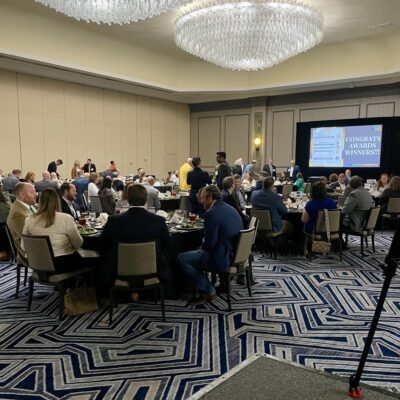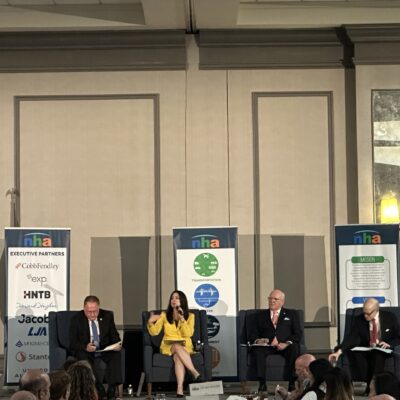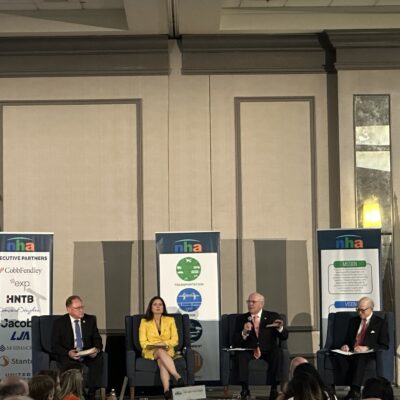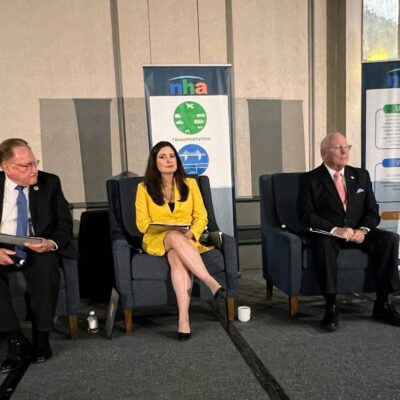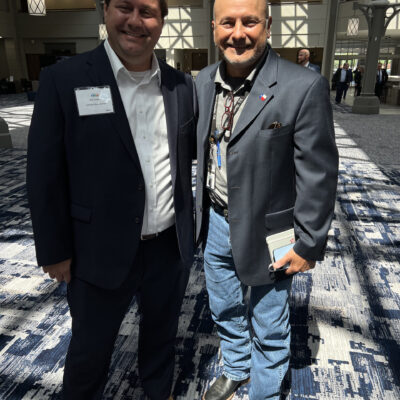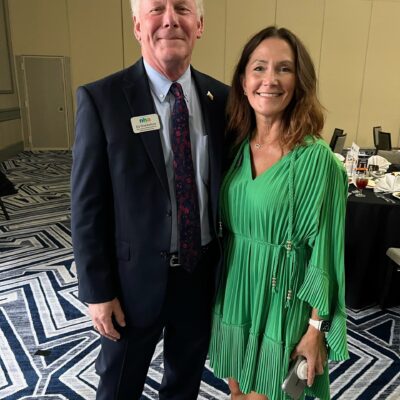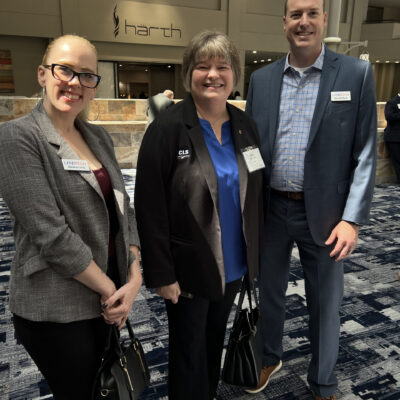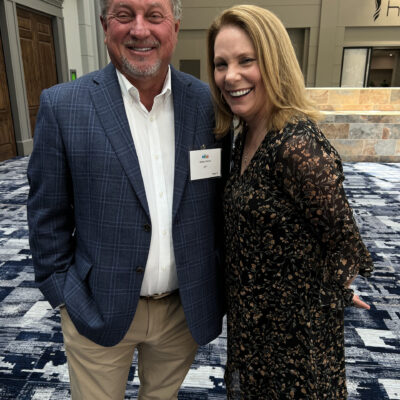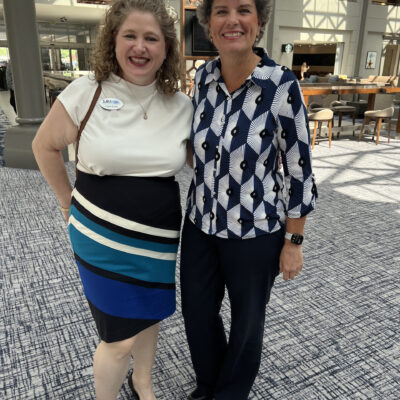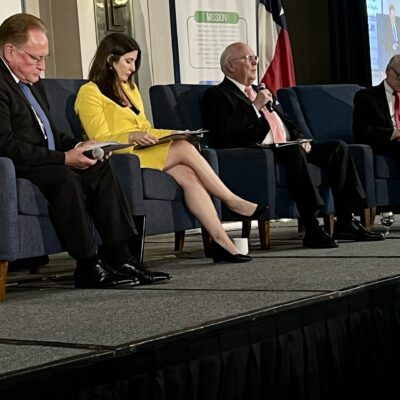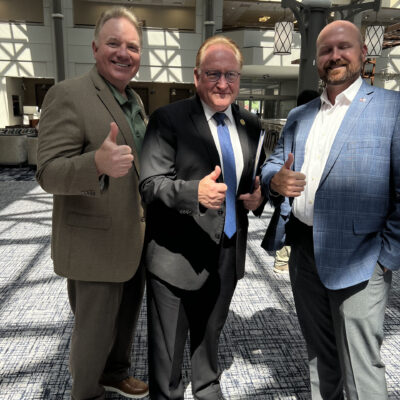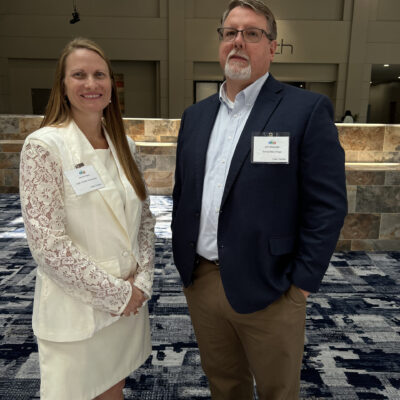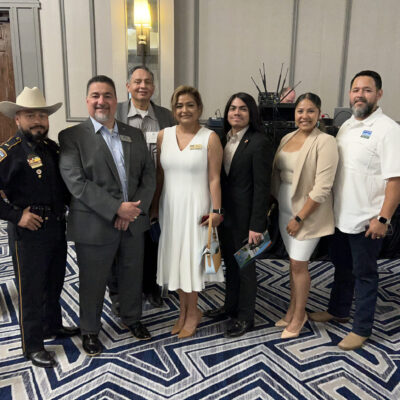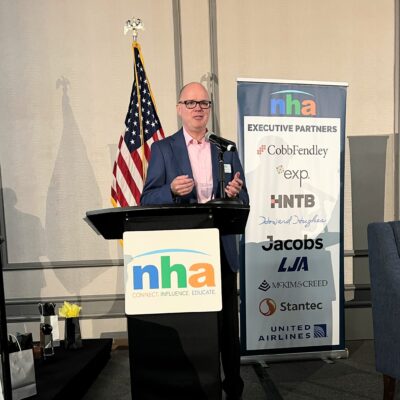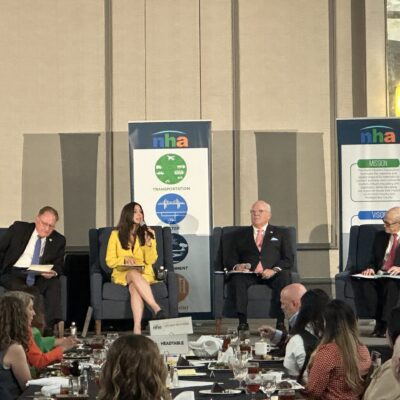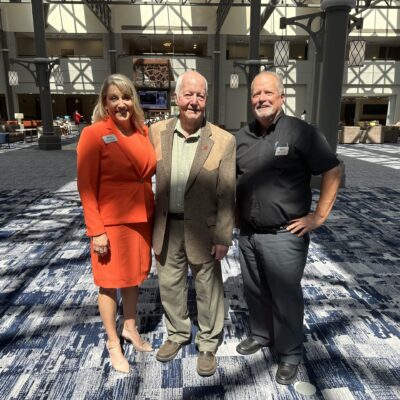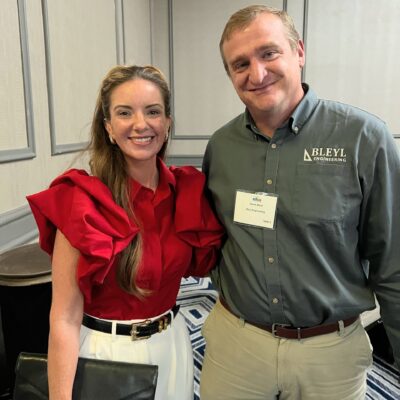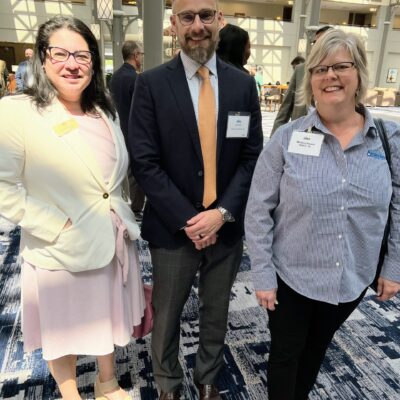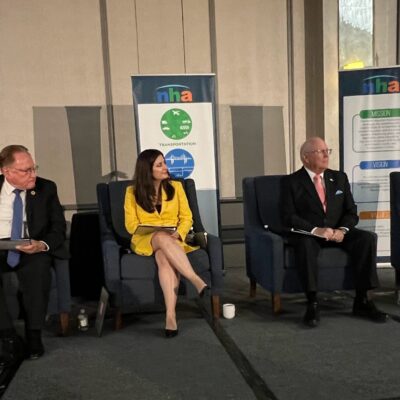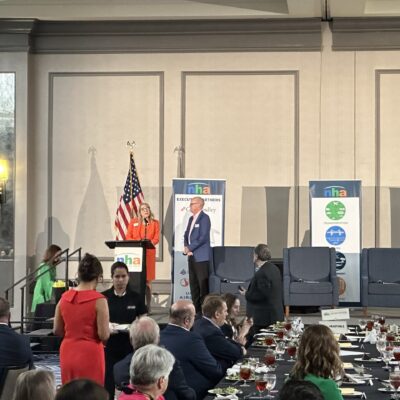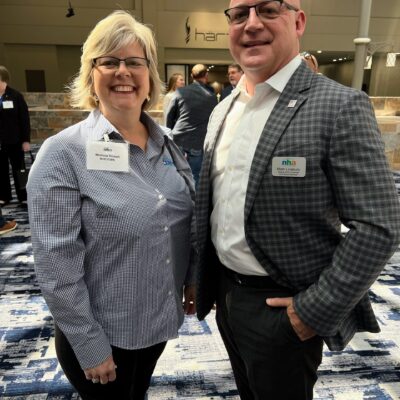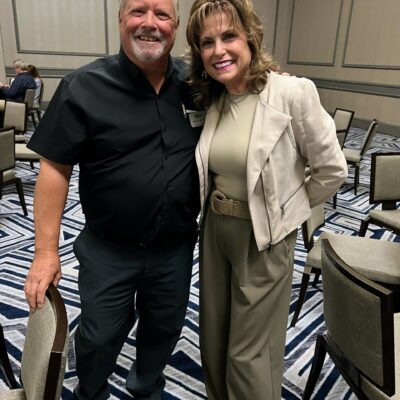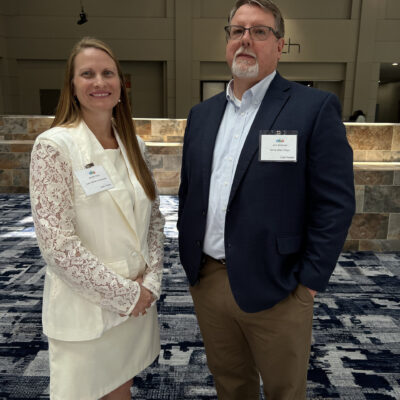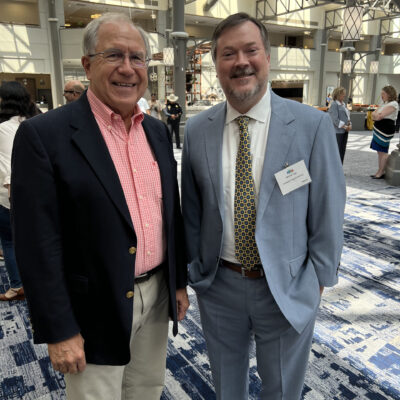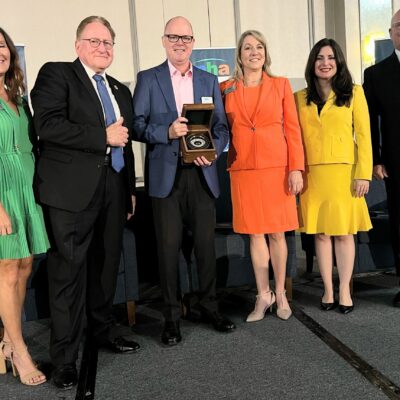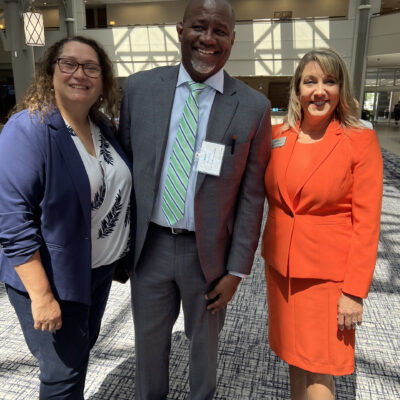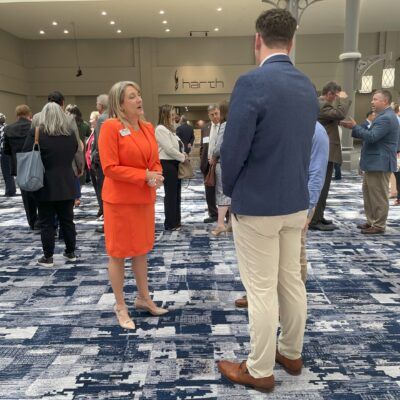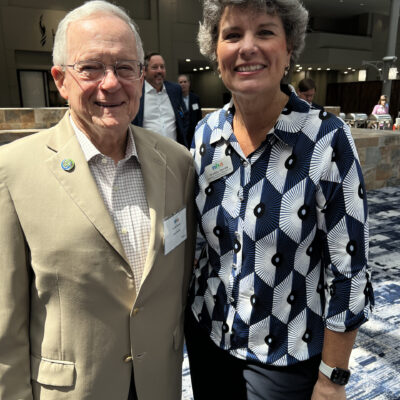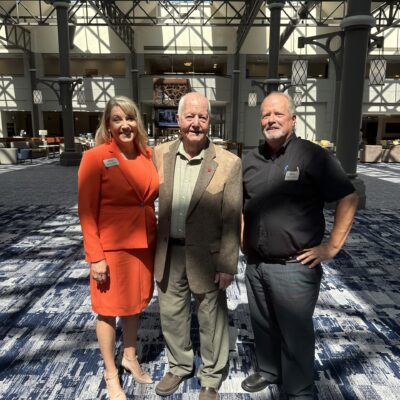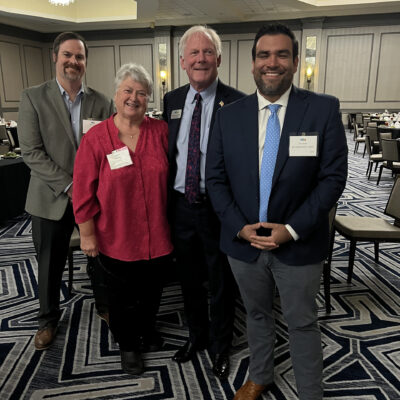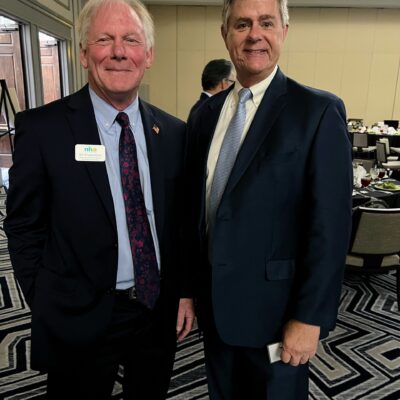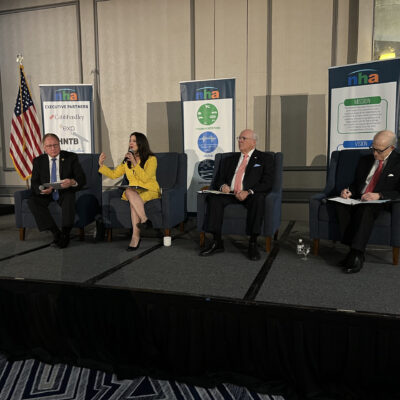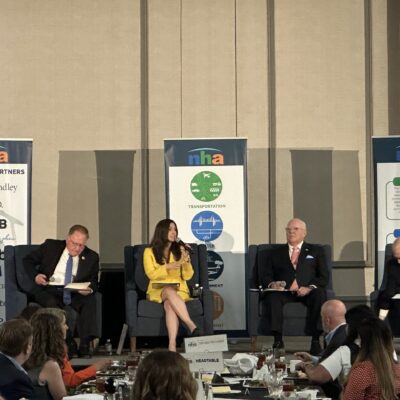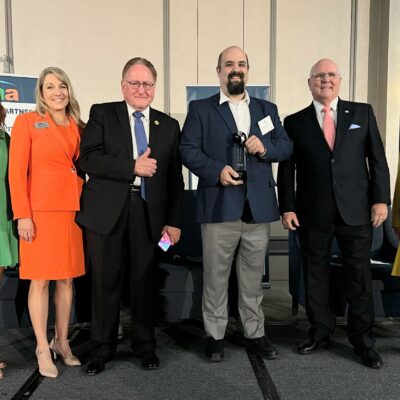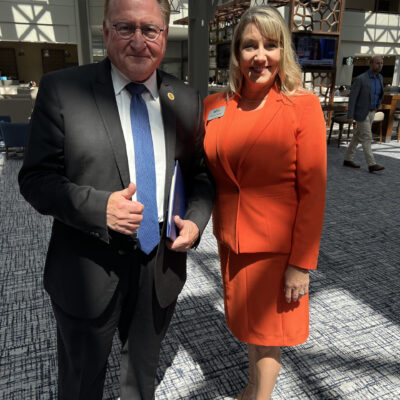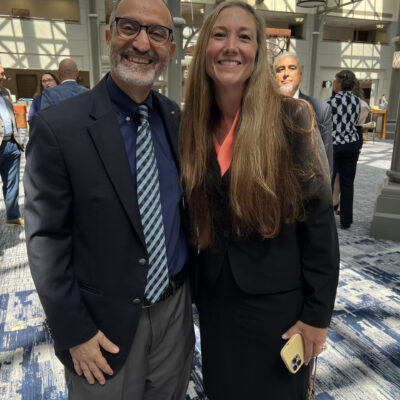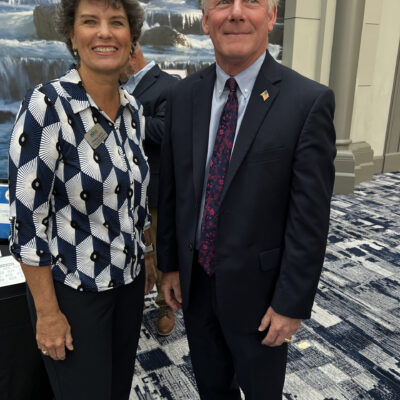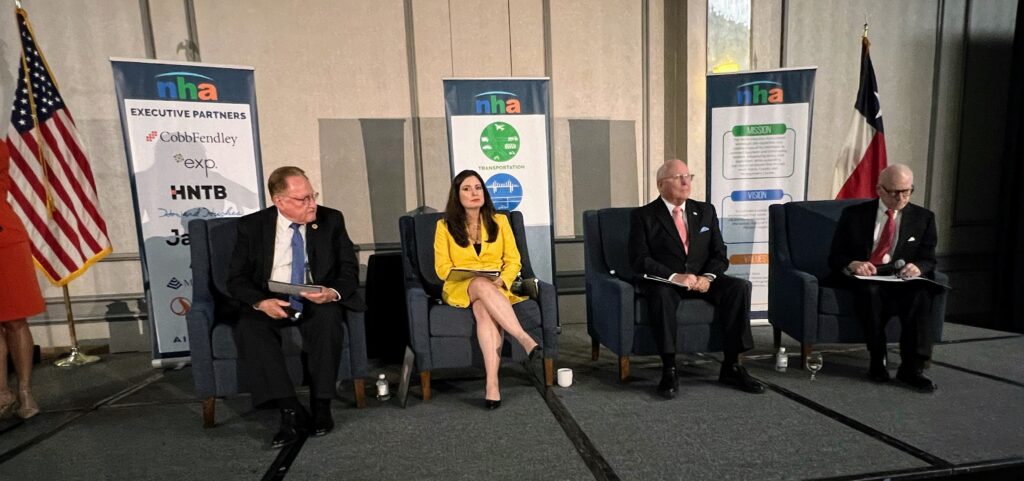
The North Houston Association’s (NHA) annual State of the Counties & Awards Ceremony brought together influential leaders from Harris and Montgomery Counties for a dynamic discussion on legislative priorities, infrastructure challenges, and the importance of local control in governance. Moderated by U.S. Ambassador Chase Untermeyer, the panel featured Montgomery County Judge Mark Keough, along with Harris County Commissioners Lesley Briones and Tom Ramsey.
Commissioner Lesley Briones opened the session by underscoring Harris County’s top legislative goals: establishing fair road allocation methods and developing a sustainable, local solution for funding Houston Police Department (HPD) and Houston Fire Department (HFD) services. Briones applauded the passage of a three-part road allocation formula championed by Commissioner Ramsey and expressed strong support for data-driven policies over blanket funding measures, like the proposed $80 million across-the-board increase for HPD and HFD.
Briones also voiced optimism over bipartisan resistance to state efforts aimed at taking control of the Harris County Flood Control District, and the proposed legislation targeting local autonomy in budget allocations, including the HCTRA surplus toll funds and a proposed $80 million allocation to the City of Houston framing the issue as a pivotal matter of local autonomy and mutual respect. “These were local issues that deserved local solutions,” said Briones. “We showed that it’s possible to work across the aisle with mutual respect to protect our community’s interests.”
Commissioner Tom Ramsey discussed his commitment to local responsibility and engineering-based planning. He highlighted the importance of maintaining roads and ditches, and emphasized the need for proper funding for the Lake Houston dredging district. Ramsey urged decision-makers to rely on data and engineering analysis when distributing mobility funds and formulating public policy while echoing Briones’ earlier sentiments on Harris County road allocation funds. “It was real data, real engineering. It didn’t take long to get it right.”
Turning northward, Judge Mark Keough detailed Montgomery County’s legislative program, emphasizing the need to retain local governance over issues like roadside vendors, appraisal district nominees, and library materials policies. Keough described the county’s approach as proactive, working through a legislative director and engaging commissioners to support relevant bills that reflect community priorities.
When asked about state involvement in county affairs, Keough emphasized the delicate balance between state oversight and local governance, referencing the Texas Constitution’s role in guiding responsibilities. “Local governments must be responsive,” he noted, “and implement policies that meet the specific needs of our communities.” Keough emphasized the importance of local listening: “The state wants to know, are local officials listening to the people?” He argued that when local governments stay within their lanes, providing safety, sound infrastructure, and economic stability, the state tends to leave them alone.
A consistent theme throughout the conversation was the pressing need for infrastructure solutions in the face of rapid population growth particularly in unincorporated areas. Commissioner Ramsey highlighted the strain placed on mobility and drainage systems, emphasizing the significance of master-planned communities and long-term planning for road and water improvements.
Judge Keough elaborated on the successful passage of Montgomery County’s $480 million road bond, emphasizing that it would not increase tax rates and would allow projects to begin promptly. “Our commissioners work well together. If one is ready to move faster, they’re willing to share resources, just as long as they get them back.”
Commissioner Briones added that Harris County Precinct 4 is launching an additional $16 million investment in sidewalks, timed with the upcoming school year. “I may be known as the ‘sidewalk lady,’ and I’ll take it,” she said proudly. She also emphasized the importance of collaboration across precincts, especially with Commissioner Ramsey, on projects like the reimagining of Hempstead Road and the Westpark Corridor.
Water availability and subsidence were hot topics, with both Ramsey and Keough advocating for surface water adoption to protect groundwater and support sustainable development. All panelists acknowledged that water management is a shared responsibility, and that cooperation across jurisdictions is crucial to meeting long-term needs. “There’s not enough of that,” Ramsey said, praising Montgomery County’s willingness to align standards for regional resilience.
Throughout the panel, Commissioner Briones emphasized the importance of mutual respect, vigorous debate, and bipartisan cooperation in local government with a united call for collaboration and innovation. “We cannot afford to operate in silos,” said Briones and Commissioner Ramsey echoed the sentiment. Despite political differences, the officials presented a unified message: governance works best when driven by data, mutual respect, and direct accountability to the people they serve.








